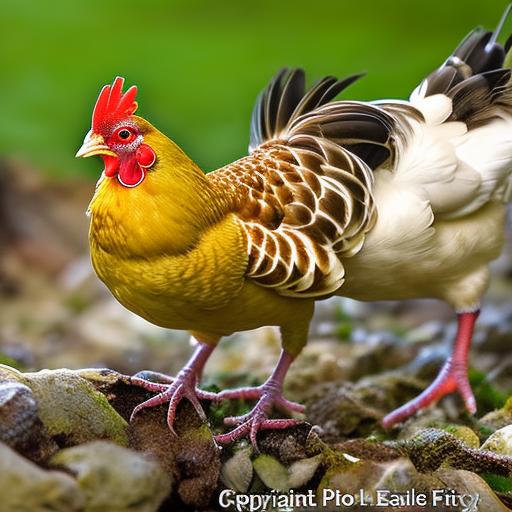Raising chickens can be a rewarding and fulfilling experience. Whether you are raising them for eggs, meat, or simply as pets, it is important to provide them with a safe and comfortable environment to grow in. One essential component of raising baby chicks is the use of a brooder. A brooder is a specially designed enclosure that provides warmth, shelter, and protection for the chicks until they are ready to move to a coop. In this article, we will discuss the purpose of a brooder, the ideal timeframe for keeping chickens in a brooder, signs that indicate your chickens are ready to move to a coop, preparing the coop for your chickens, temperature control in the brooder and coop, feeding and watering your chickens, cleaning the brooder and coop, and the benefits of moving your chickens to a coop.
Key Takeaways
- A brooder is a necessary tool for raising chickens.
- Chickens should be kept in a brooder for 4-6 weeks.
- Signs that chickens are ready to move to a coop include feather growth and increased activity.
- Coops should be prepared with proper ventilation and predator protection.
- Temperature control is crucial for the health of chickens in both the brooder and coop.
The Purpose of a Brooder
A brooder is an essential tool for raising baby chicks. It provides them with a warm and safe environment that mimics the conditions they would experience with their mother hen. The primary purpose of a brooder is to provide warmth. Baby chicks are unable to regulate their body temperature effectively and require an external heat source to keep them warm. A brooder typically consists of a heat lamp or heating pad that provides a constant source of warmth for the chicks.
In addition to warmth, a brooder also provides shelter and protection from predators. Baby chicks are vulnerable to attacks from predators such as cats, dogs, and even larger birds. A brooder provides a secure enclosure that keeps predators out and allows the chicks to grow safely.
The Ideal Timeframe for Keeping Chickens in a Brooder
The length of time that baby chicks should be kept in a brooder depends on several factors, including their breed and individual development. On average, baby chicks should be kept in a brooder for about 4-6 weeks before they are ready to move to a coop. During this time, it is important to monitor their growth and development to determine when they are ready for the transition.
It is important to note that every chick is different, and some may be ready to move to a coop earlier or later than others. Signs that indicate your chicks are ready to move to a coop include feather growth, increased activity levels, and the ability to regulate their body temperature without the need for supplemental heat. It is important to make the transition gradually to avoid stressing the chicks. Start by allowing them short periods of supervised time in the coop before gradually increasing the amount of time they spend there.
Signs That Your Chickens are Ready to Move to a Coop
There are several signs that indicate your baby chicks are ready to move from the brooder to a coop. One of the most obvious signs is feather growth. Baby chicks are born with down feathers, which are soft and fluffy. As they grow, they will start to develop their adult feathers. Once their adult feathers have fully grown in, it is a good indication that they are ready for the transition.
Another sign that your chicks are ready to move is increased activity levels. As they grow, they will become more active and start exploring their surroundings. They will also start scratching and pecking at the ground, which is a natural behavior for chickens.
Lastly, your chicks should be able to regulate their body temperature without the need for supplemental heat. This means that they should be able to stay warm on their own without relying on a heat lamp or heating pad. If you notice that your chicks are spending less time under the heat source and more time exploring and socializing with each other, it is a good indication that they are ready for the transition.
Preparing the Coop for Your Chickens
Before moving your chickens from the brooder to a coop, it is important to prepare the coop to ensure that it is a safe and comfortable environment for them. The first step is to clean the coop thoroughly. Remove any old bedding, droppings, and debris from the coop. Scrub the walls, floors, and nesting boxes with a mild detergent or disinfectant to remove any bacteria or parasites that may be present.
Once the coop is clean, add fresh bedding such as straw or wood shavings. This will provide a comfortable surface for your chickens to walk and sleep on. Make sure to provide enough bedding to keep the chickens warm during colder months.
Next, provide food and water containers in the coop. Choose containers that are suitable for adult chickens and can hold enough food and water for all of your chickens. It is important to provide a balanced diet for your chickens to ensure that they stay healthy. This includes a combination of commercial chicken feed, fresh fruits and vegetables, and access to insects and worms.
Lastly, make sure that the coop has adequate space and ventilation. Chickens need enough space to move around freely and stretch their wings. The coop should also have windows or vents that can be opened to allow fresh air to circulate.
The Importance of Temperature Control in the Brooder and Coop

Temperature control is crucial for the health and well-being of your chickens, both in the brooder and in the coop. In the brooder, it is important to maintain a constant temperature of around 95 degrees Fahrenheit for the first week. Gradually reduce the temperature by 5 degrees each week until the chicks are fully feathered and can regulate their body temperature on their own.
In the coop, it is important to maintain a comfortable temperature, especially during extreme weather conditions. Chickens are sensitive to both heat and cold, so it is important to monitor the temperature regularly and make adjustments as needed. During hot weather, provide shade and access to fresh water to help keep your chickens cool. During cold weather, provide additional bedding and insulation to keep your chickens warm.
Feeding and Watering Your Chickens in the Brooder and Coop
Feeding and watering your chickens is an important aspect of their care, both in the brooder and in the coop. In the brooder, it is important to provide a balanced diet that meets the nutritional needs of your baby chicks. This includes a commercial chick starter feed that is high in protein and essential nutrients. It is also important to provide clean, fresh water at all times.
In the coop, continue to provide a balanced diet that includes a combination of commercial chicken feed, fresh fruits and vegetables, and access to insects and worms. Make sure to provide enough food and water for all of your chickens and check the containers regularly to ensure they are clean and free from debris.
Cleaning the Brooder and Coop
Keeping the brooder and coop clean is essential for the health and well-being of your chickens. Dirty conditions can lead to the spread of disease and parasites, which can be detrimental to your flock. In the brooder, clean out droppings and replace bedding regularly. Scrub the walls, floors, and any equipment with a mild detergent or disinfectant to remove any bacteria or parasites.
In the coop, clean out droppings and replace bedding on a regular basis. Scrub the walls, floors, nesting boxes, and any equipment with a mild detergent or disinfectant. It is also important to regularly check for signs of pests such as mites or lice and take appropriate measures to control them.
The Benefits of Moving Your Chickens to a Coop
Moving your chickens from a brooder to a coop offers several benefits for both you and your chickens. One of the main benefits is providing more space for your chickens to move around freely. Chickens need enough space to stretch their wings, scratch and peck at the ground, and engage in natural behaviors.
A coop also provides fresh air and access to outdoor areas. Chickens thrive in environments with good ventilation and access to sunlight. Fresh air helps to prevent the buildup of ammonia and other harmful gases that can be present in enclosed spaces. Access to outdoor areas allows chickens to forage for insects and worms, which is a natural behavior for them.
Lastly, a coop helps to keep your chickens healthy and happy. It provides protection from predators, shelter from the elements, and a safe place to roost and lay eggs. A well-designed coop can also make it easier for you to care for your chickens and collect eggs.
Conclusion and Final Thoughts
Raising chickens can be a rewarding and enjoyable experience. Providing a safe and comfortable environment for your chickens is essential for their health and well-being. Using a brooder is an important part of raising baby chicks, as it provides warmth, shelter, and protection. It is important to monitor the growth and development of your chicks to determine when they are ready to move to a coop. Preparing the coop involves cleaning, adding bedding, providing food and water containers, and ensuring adequate space and ventilation. Temperature control is crucial in both the brooder and the coop, as chickens are sensitive to heat and cold. Feeding and watering your chickens properly is important for their health, both in the brooder and in the coop. Regular cleaning of the brooder and coop is necessary to prevent the spread of disease and parasites. Moving your chickens from a brooder to a coop offers several benefits, including more space, fresh air, access to outdoor areas, and improved health and happiness. By providing a safe and comfortable environment for your chickens, you can ensure that they thrive and provide you with years of enjoyment.
If you’re interested in learning more about raising chickens, you may also want to check out this informative article on chicken coop design and maintenance. It provides valuable insights on creating a comfortable and safe environment for your feathered friends. From choosing the right materials to ensuring proper ventilation and predator protection, this article from Poultry Wizard offers practical tips and advice for building a chicken coop in Grand Island, NE. Read more here.
FAQs
What is a brooder?
A brooder is a heated enclosure used to keep young chicks warm and safe during their first few weeks of life.
How long should chicks be kept in a brooder?
Chicks should be kept in a brooder for approximately 4-6 weeks, or until they are fully feathered and can regulate their own body temperature.
What temperature should a brooder be kept at?
A brooder should be kept at a temperature of approximately 95-100 degrees Fahrenheit for the first week, and then gradually decreased by 5 degrees each week until the chicks are fully feathered.
What kind of bedding should be used in a brooder?
A variety of bedding materials can be used in a brooder, including pine shavings, straw, or paper towels. The bedding should be changed frequently to maintain cleanliness and prevent the buildup of harmful bacteria.
What kind of food and water should be provided in a brooder?
Chicks should be provided with a high-quality chick starter feed and fresh water at all times. The water should be kept clean and changed frequently to prevent contamination.
What kind of lighting should be used in a brooder?
A heat lamp or other source of heat should be used to maintain the proper temperature in the brooder. A red or blue light can also be used to provide additional warmth and simulate natural daylight.
Meet Walter, the feathered-friend fanatic of Florida! Nestled in the sunshine state, Walter struts through life with his feathered companions, clucking his way to happiness. With a coop that’s fancier than a five-star hotel, he’s the Don Juan of the chicken world. When he’s not teaching his hens to do the cha-cha, you’ll find him in a heated debate with his prized rooster, Sir Clucks-a-Lot. Walter’s poultry passion is no yolk; he’s the sunny-side-up guy you never knew you needed in your flock of friends!







